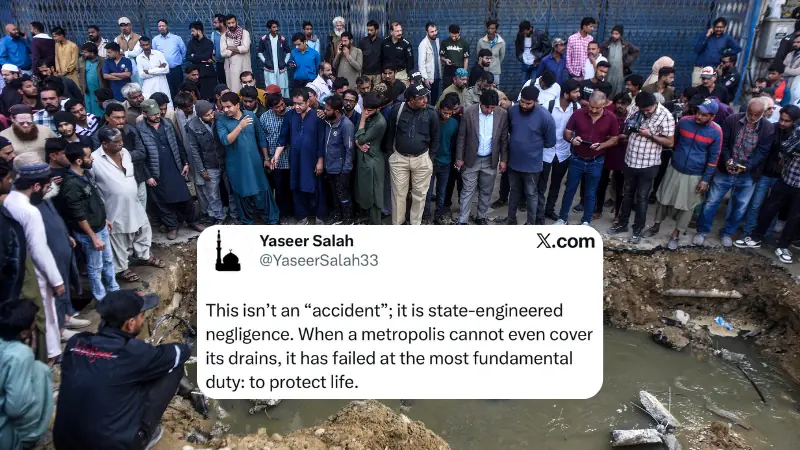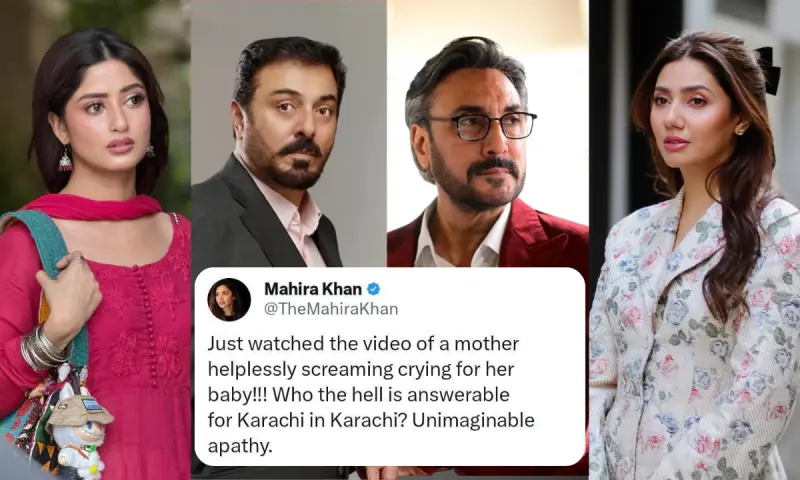A woman who gains weight is not any less desirable, Aagha Ali
Despite being called out for problematic content countless times, Nida Yasir's Good Morning Pakistan continues to bag headlines based on controversial statements, truly believing all publicity is good publicity.
In a recent interview with newlyweds Aagha Ali and Hina Altaf, the platform once again came under fire on social media when a clip of the duo went viral, in which they casually share with the audience what conditions set the base for their marriage.
"Before marriage, Aagha showed me a picture of someone, who wasn't me and said if you become this fat..." shared Hina.
"No ji," protested Aagha. "I said I don't want anything in this world, only one promise, only one. Please don't get fat, for god's sake."
In a Pakistani context where expectations of glamourised appearances are conditioned as acceptable parts of relationships, Altaf also mentioned how her husband taunts her between meals, reminding her of the 'promise' she made to him.
But why is communication and compromise within a celebrity couple's relationship, a public condemnation affair?
In a society that constantly puts women on a pedestal, unrealistic body standards have dominated television screens, Instagram feeds, and our everyday lives like no tomorrow. The brunt of this pressure is especially faced by married, and according to society, plus-sized women - who despite being all rounders, have to prove their worth based on their size.
It is deemed natural to criticise, humiliate and often discredit women with feelings of inadequacy if they gain a few pounds.
With the way Aagha has demanded, or may I say demeaned, fat women are somehow less desirable and unlovable. Apparently even less acceptable than the prospect of losing an entire relationship, based on just your weight.
When you say things on national television in front of millions of people who put you on a pedestal based on your celebrity status, you give out the message that it is okay to glare at your partner's food or use coercive, emotional means to keep a constant watch on what is on their plate.
When you laugh it off, you normalise the dynamics of such a behaviour - a relationship based on just obsessing over whether your partner is attracted to you. A relationship, where staying fit and healthy isn't encouraged as a preference or a norm, but portrayed as a condition or intimidating threat. One can be a cheerleader and support system for their partner in their quest for fitness, or one can straight up fat-shame - no points for guessing what this interaction came off as.
With physical attraction forming the basis of relationships, change in appearances affects relationship dynamics in grave ways. So what happens if the promise breaks? If a woman indulges in food habits post-maternity, or even as an escape?
According to Aagha's explanation, his concern is because "no producer/ director/ writer would like to have an overweight heroine." However, his justification only makes things worse if you ask me.


Having the resources, the platform and a massive fan following, the duo has the power to advocate for change. To raise important questions, instead of lowering the spirits of the many women watching them.
Does your weight define your talent? Is being fat worse than being a toxic partner, objectifying companion or controlling authority in a relationship?











Comments